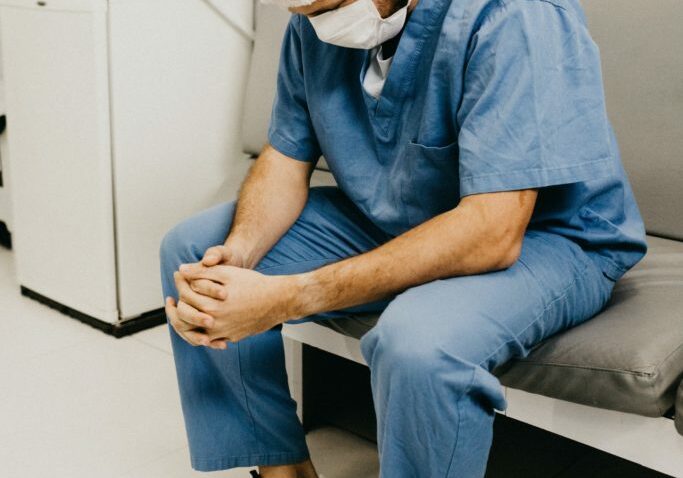Going through MATCH is a strenuous process, so much so that finally finding out what residency program you’ve matched with comes as an enormous relief. But what happens if you realize the residency you’ve landed isn’t the right one for you? Is switching residency programs a good idea?
This situation occurs more often than you might think. For example, 18% of general surgery residents drop out, the majority opting to go into other specialties. Switch rates vary by specialty, but most programs have had residents leave mid-training. Thus, there’s no need to fear changing programs will make you appear indecisive or undedicated. In fact, many residency programs have some processes in place to aid residents who want to leave — and to allow other residents to switch into the program .
Reasons to change residency programs
Switching residency programs can be an arduous process, but sometimes a necessary and beneficial one. Here are some common reasons why a medical resident might consider making the big switch.
The location isn’t right for you or your spouse. A resident who matched into a prestigious program at a big city hospital might find they long to be in a quieter environment, while one who opted for a small town might miss the urban life.
If you’ve moved away from home for your residency, you might come to realize that being close to friends and family is more important to you than you had anticipated. Your spouse or partner may also have a tough time adjusting to a new place because they are unable to find a local job in their field, they find the community uninviting, or one of many other valid reasons.
You want to pursue a different specialty. Residency programs give you a closer look at your specialty, other specialties, and what life is going to look like in the one you’ve chosen. Some come to realize that the work-life balance, the potential for a higher income, or the amount of doctor-patient interaction in a specialty is actually quite different from what they’d pictured as a medical student. A resident might simply just fall in love with a specialty other than the one they’d initially thought they wanted to pursue.
The program isn’t what you hoped it would be. Sometimes, the individual residency program itself can trigger a decision to change programs. The institution might have bureaucratic problems, the residency program may be disorganized, or the program may just feel toxic. In the worst cases, residents have experienced harassment or discrimination in their residency programs, triggering them to look into how to switch residency programs. If you find that issues in your residency program prevent you from learning or seriously affect your mental wellbeing, the best decision may be to leave.
How to switch residency programs
Because each person’s circumstances are different, there is no single best path for switching residency programs. However, here are some general steps to follow to help you move to the right residency program for you.
- First, be certain you want to change programs. Being a resident is tough, no matter what your specialty. Even under the best circumstances, many residents go through periods when they feel tired, low, or burned out. Before you commit to switching residency programs, make sure this change will truly lead to becoming a more fulfilled and capable person and doctor. Not sure whether the issue is your residency program or other concerns in your life? Talking with a coach or physician family advocate might help you get clarity about your career and life.
- Find mentors and supporters. Depending on the reasons you want to switch programs and the type of switch you want to make, the mentors you seek out will differ. One common place to start is by meeting with your current residency program director, who will likely be able to offer valuable advice and guidance. The future programs you apply to will eventually contact your program director to get a sense of your standing in your current program anyway, so it makes sense to loop the director into your decision early in the process.
- Survey your options. Think carefully about your individual situation: How can you change residency programs and allow for the smoothest transition? Do you want to change specialties but stay in the same institution? In that case, your next best step is likely to ask the program director of the specialty you want to switch to if an opening might be available. Do you want to keep your specialty but move to a different place? If so, reach out to the programs for your specialty in the area you want to move to. Resources like Doximity’s Residency Navigator can help you search for programs that meet your criteria. You can also learn about positions that are readily available through websites such as the American Medical Association’s FREIDA, the Association of American Medical Colleges’ FindAResident, or ResidentSwap.org — as well as Inside The Match’s Twitter feed, which highlights new opportunities in real time.
- Apply and interview — again. If timelines align, you might consider applying for another Match and going through the process again. However, you can also choose to go it on your own. More of the responsibilities for the whole process will fall on you, but you’ll have more time flexibility. When you interview this time around, be prepared to share your reasons for changing programs. This is where a mentor can help take the emotion out of your experience so you can convey your reasons for change in a more business-like manner.
So, can you switch residency programs? Absolutely. Following the steps above will hopefully lead to a new program that’s a better fit for you. The path to changing programs can feel lonely and isolating at times, but know that many others have successfully completed this process in the past. You’re far from alone.



